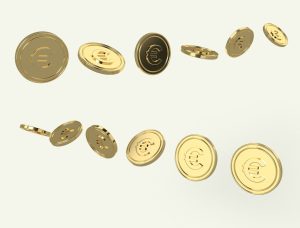Foreign exchange rates are determined by the market forces of supply and demand. However, some countries choose to peg their currency above the equilibrium level, which means they set a fixed exchange rate that is higher than the market rate. This decision is usually made for economic and political reasons. In this article, we will explore the reasons why countries peg forex above equilibrium.
1. To control inflation
One of the primary reasons why countries peg their currency above equilibrium is to control inflation. When a country’s currency is devalued, it leads to an increase in the prices of imported goods. This, in turn, raises the overall price level within the country, leading to inflation. By pegging the currency above equilibrium, the country can ensure that the prices of imported goods remain stable, and inflation is kept under control.
2. To attract foreign investment
When a country’s currency is pegged above equilibrium, it makes the country more attractive to foreign investors. This is because the investors can buy the currency at a cheaper rate than the market rate, which means that they can get more value for their money. This, in turn, leads to an increase in foreign investment in the country, which can help to boost the country’s economy.
3. To promote exports
Another reason why countries peg their currency above equilibrium is to promote exports. When a country’s currency is undervalued, it makes the country’s exports cheaper in the international market. This leads to an increase in demand for the country’s exports, which can help to boost the country’s economic growth. By pegging the currency above equilibrium, the country can ensure that its exports remain competitive in the international market.
4. To maintain political stability
Pegging a currency above equilibrium can also help to maintain political stability within a country. When a country’s currency is devalued, it can lead to social unrest and political instability. This is because the devaluation of the currency leads to an increase in the cost of living, which can lead to protests and social unrest. By pegging the currency above equilibrium, the country can ensure that the cost of living remains stable, and political stability is maintained.
5. To maintain a fixed exchange rate
Some countries choose to peg their currency above equilibrium simply to maintain a fixed exchange rate. This is because a fixed exchange rate can provide stability and predictability in international trade. For example, if a country has a fixed exchange rate with another country, it can ensure that the prices of goods and services remain stable, which can help to promote trade between the two countries.
In conclusion, countries peg their forex above equilibrium for various reasons. These reasons include controlling inflation, attracting foreign investment, promoting exports, maintaining political stability, and maintaining a fixed exchange rate. While there are benefits to pegging a currency above equilibrium, it can also lead to economic distortions and may not be sustainable in the long run. Therefore, countries must carefully consider the pros and cons of pegging their currency above equilibrium before making this decision.





